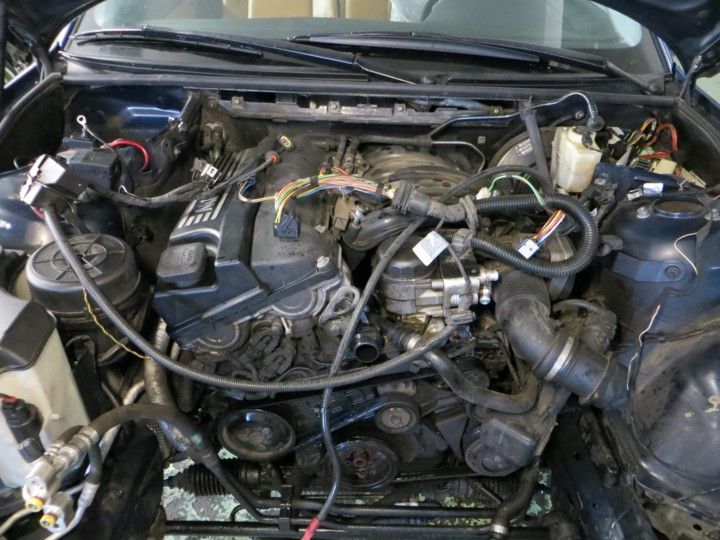Why the BMW 318ti Is a Leading Choice for Vehicle Lovers
Why the BMW 318ti Is a Leading Choice for Vehicle Lovers
Blog Article
Secret Functions to Seek When Buying an Engine for Automotive Applications
When considering the purchase of an engine for auto applications, several vital functions warrant mindful analysis to make sure optimum performance and capability. From power and efficiency abilities to sustain adherence, performance, and resilience to discharges criteria, each aspect plays a critical function in determining the engine's suitability for specific automotive requirements. Cost-effectiveness remains a crucial variable in the decision-making procedure, stabilizing quality with economic considerations. These functions collectively add to the total performance and integrity of the engine, influencing the driving experience and long-term fulfillment of the customer.
Power and Efficiency
When picking an automobile engine, buyers prioritize power and performance to make certain optimal driving experience and effectiveness. The power output of an engine, usually gauged in horse power (HP) or kilowatts (kW), determines the velocity, full throttle, and total capabilities of a vehicle. Higher power rankings normally cause quicker velocity and much better performance, specifically throughout overtaking or carrying heavy loads. Performance, on the various other hand, incorporates a broader spectrum of characteristics, including fuel effectiveness, discharges, reliability, and overall driving characteristics. A well-performing engine not just provides power successfully however additionally operates smoothly across different rate arrays and driving conditions.
Additionally, variables such as engine crossbreed, turbocharging, and displacement modern technologies play significant functions in improving both power and efficiency levels. Eventually, picking an engine that offers a powerful combination of power and performance makes sure a effective and satisfying driving experience.
Fuel Effectiveness
Enhancing fuel effectiveness is a paramount consideration for consumers when assessing automobile engine options. Modern engines with functions like straight fuel injection, turbocharging, and variable shutoff timing can dramatically improve fuel effectiveness by boosting burning procedures and lowering energy loss.

Toughness and Dependability
Achieving long-lasting efficiency and dependable operation is crucial for customers assessing the longevity and reliability of vehicle engines. When taking into consideration an engine for vehicle applications, longevity describes the engine's capacity to withstand wear, tension, and extreme operating problems over an extensive duration. Integrity, on the other hand, implies that the engine can constantly perform its desired function without unexpected breakdowns or failings.
Customers must try to find engines created with high-quality materials and specific design to ensure long life. Parts such as crankshafts, bearings, and pistons ought to be sturdy to handle the engine's power output without premature wear. In addition, engines furnished with advanced cooling systems, efficient lubrication, and robust filtering mechanisms tend to display higher degrees of reliability.
Regular upkeep and adherence to supplier referrals are also important consider preserving an engine's sturdiness and reliability. By adhering to upkeep routines, utilizing recommended fluids, and dealing with any kind of concerns promptly, consumers can make best use of the life expectancy and efficiency of their auto engines. Eventually, prioritizing toughness and dependability in engine option can result in a more satisfying ownership experience with less unanticipated interruptions.
Emissions Conformity
Ensuring compliance with exhausts regulations is a crucial aspect of reviewing automobile engines for environmentally conscious consumers. With enhancing concerns concerning air high quality and ecological influence, rigorous exhausts standards have actually been implemented around the world to lower hazardous contaminants launched into the atmosphere. When buying an engine for vehicle applications, it is crucial to consider its exhausts compliance to lessen the carbon impact and comply with legal requirements.
Modern engines are furnished with innovative emission control modern technologies such as catalytic converters, exhaust gas recirculation (EGR) systems, and discerning catalytic reduction (SCR) to minimize hazardous exhaust gases like nitrogen oxides (NOx), carbon monoxide gas (CARBON MONOXIDE), and hydrocarbons (HC) These systems play a vital function in ensuring that the engine fulfills the specified emissions criteria and operates within permitted limitations.

Cost-effectiveness
When considering automotive engine acquisitions, reviewing cost-effectiveness is critical for consumers looking for both performance and worth. Cost-effectiveness in engine purchase involves more than simply the preliminary acquisition rate. It includes the general expenditures associated with upkeep, fuel intake, and prospective repairs over the engine's life expectancy. Choosing an engine that provides a balance in between ahead of time prices and lasting savings can lead to considerable advantages for the customer.
One trick aspect of cost-effectiveness is fuel performance. Engines that are designed to make the most of fuel economy can result in considerable savings in time, especially for individuals that drive frequently or over fars away. Furthermore, considering the schedule and price of spare components and servicing can contribute to the overall cost-effectiveness of an engine. Making sure that repair and maintenance are available and affordable can avoid unforeseen economic worries down the line.

Final Thought
Finally, when acquiring an engine for automobile applications, it is crucial to think about vital attributes such as power and performance, fuel durability, reliability and efficiency, exhausts compliance, and cost-effectiveness. These factors are crucial in making certain that the engine fulfills the needs of the vehicle and runs effectively in numerous driving problems - bmw 318ti. Making a notified decision based upon these standards will inevitably lead to a reliable and effective vehicle engine purchase
From power and efficiency capabilities to fuel longevity, efficiency, and adherence to discharges standards, each element plays a crucial role in establishing the engine's viability for particular auto demands. Engines made to run on different gas such as electrical power, hybrid systems, or biofuels can offer improved fuel economic situation and reduced discharges compared to traditional gas or diesel engines. Consumers should thoroughly take into consideration the gas performance scores and modern technologies incorporated into automobile engines to make informed purchasing decisions that straighten with their top priorities for expense savings and sustainability.
When considering an engine for automobile applications, longevity refers to the engine's capacity to withstand wear, stress, and rough operating conditions over a prolonged duration.In final thought, when acquiring Homepage an engine for automobile applications, it is crucial to consider vital attributes such as power and efficiency, fuel effectiveness, reliability and longevity, exhausts compliance, and cost-effectiveness.
Report this page